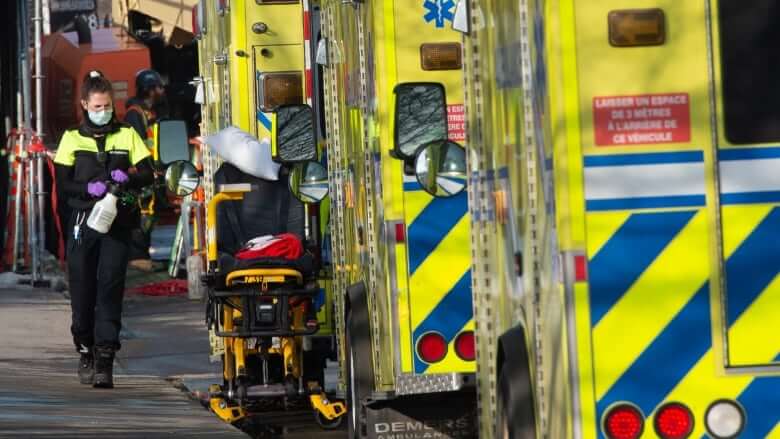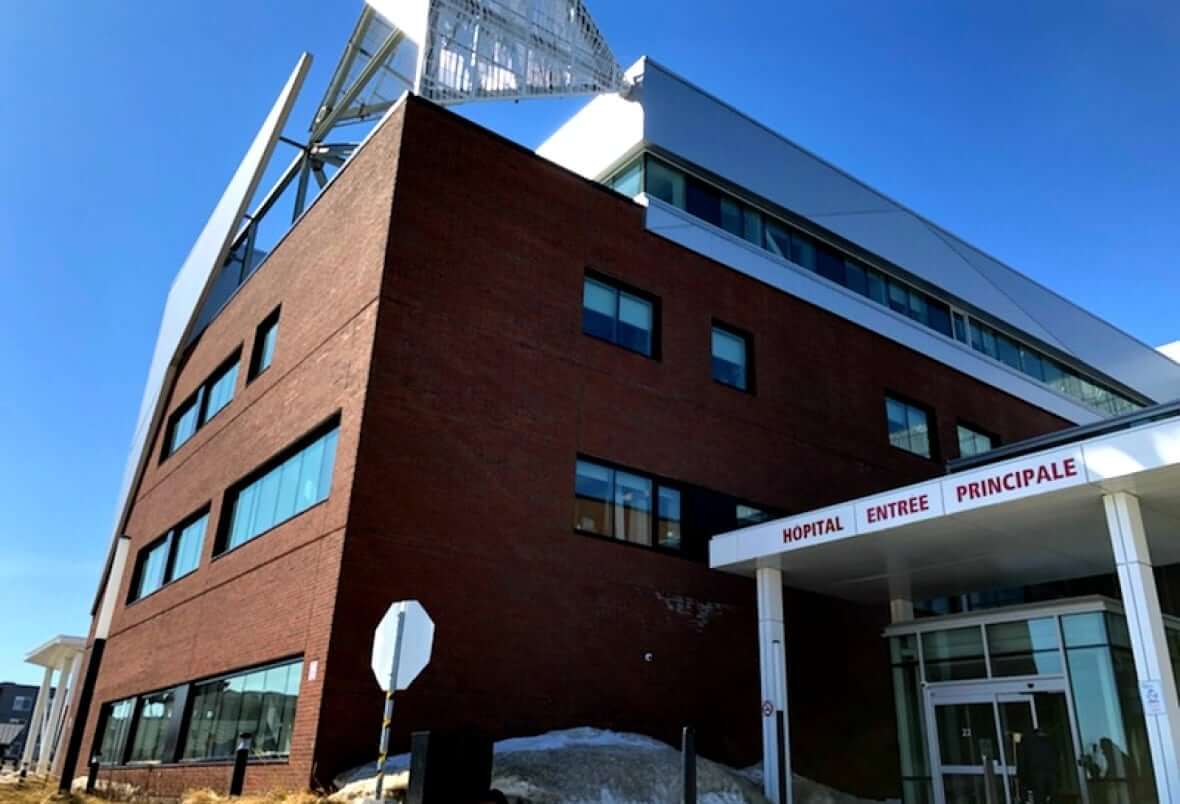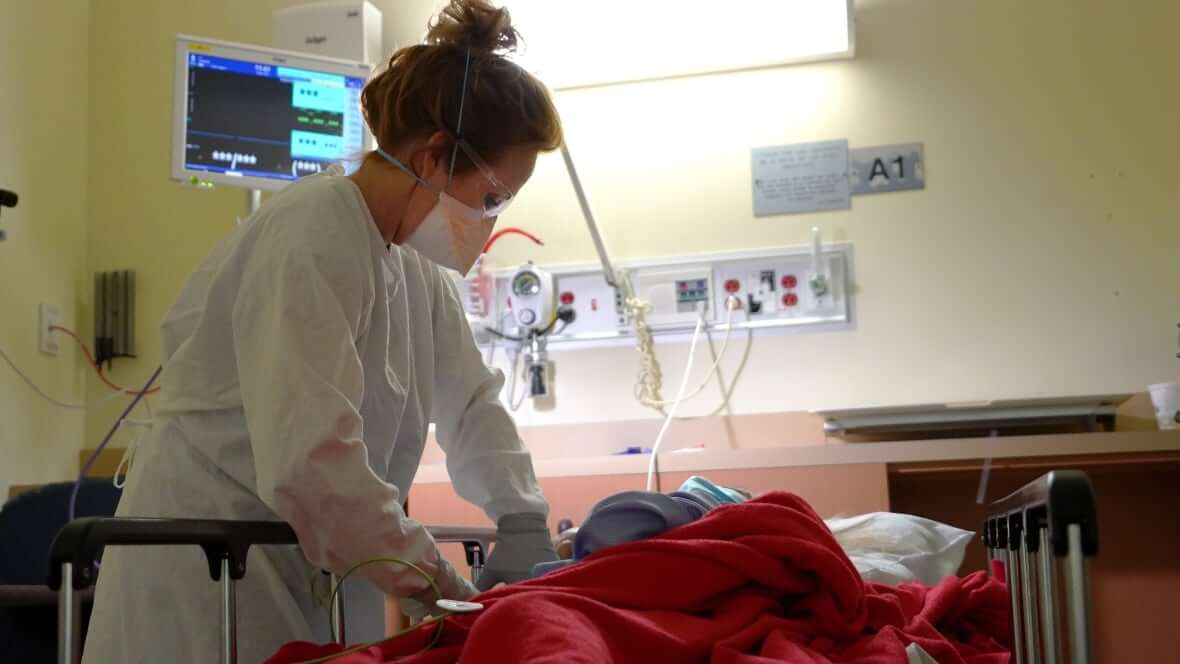Quebec ERs ‘on the verge of a breakdown’ and need help, emergency doctor says

A growing number of emergency rooms in Quebec are struggling to care for patients as hospitals deal with severe staffing shortages caused by nurses fed up with pandemic working conditions.
Pandemic has left backlog of almost 16 million medical procedures in Ontario, doctors say
Across the province, several ERs have been forced to curtail their opening hours, doctors are warning about the potential for medical errors and patients are facing longer wait times.
Doctors working for the CIUSSS de l’Est-de-l’Île-de-Montréal say beleaguered hospital ERs in Montreal’s east end are on the brink of collapse. They warned of a possible closure of services in an open letter addressed to the Ministry of Health on Monday.
“We see the situation is getting worse and worse over time, and we’re on the verge of a breakdown,” said Dr. Bernard Mathieu, an emergency physician at Maisonneuve-Rosemont Hospital, who penned the letter.
The signatories blame deteriorating work conditions exacerbated by the pandemic — such as “stratospheric amounts” of forced overtime, competition from private nursing agencies that offer better pay and hours, and insufficient salaries — for the lack of staff.
“This is something that makes people very angry, very tired and what happens then is that you quit. You can’t go on like this all summer long,” Mathieu said.
A provincewide problem
The precarious situation at Maisonneuve-Rosemont Hospital, where Mathieu says half the nursing and three-quarters of the respiratory therapist positions are vacant, is just a drop in the bucket compared to the rest of the province.
As of Tuesday, the average occupancy rate in emergency rooms across Quebec was 106 per cent, with several in the Montérégie region on the South Shore of Montreal nearing or topping 200 per cent. Alarm bells have been going off in the form of closures, curtailed hours and capacity notices for several weeks.
In June, Baie-Saint-Paul Hospital’s emergency room in the Charlevoix region near Quebec City announced it was scaling back hours due to a lack of nurses. Hospital staff had to juggle shifts and push back vacations to keep the department open at all.
A few days later, Gatineau Hospital’s emergency room closed entirely for several days in the Outaouais region amid a nursing shortage — something a grieving family blames for how their loved one was treated two days before she died in hospital.

Within the past two weeks, Quebecers have been asked to avoid emergency rooms at Maisonneuve-Rosemont and Santa Cabrini Hospital in eastern Montreal, while the CIUSSS de l’Estrie-CHUS asked the population to “choose wisely” where they received care, due to capacity limits at the Granby Hospital and the Brome-Missisquoi-Perkins Hospital.
The CISSS des Laurentides also asked people with non-urgent health problems “to opt for other solutions” than going to emergency due to high occupancy rates, particularly at the Saint-Eustache Hospital.
On Monday, the Coaticook emergency room in the Eastern Townships said it will only be open during the day from July 14 to August 16 due to a lack of personnel.
Staffing issues, high demand
Dr. Richard Fleet says there are multiple contributing factors to current overcrowding in emergency rooms, including people seeking care after avoiding hospitals during the height of the pandemic and surgical activities back to running at pre-pandemic rates.
This increased demand without adequate staffing levels creates “a perfect storm” for risk of medical errors, according to the emergency room physician and research chair in emergency medicine at Laval University.
For Dr. Judy Morris, president of the Association des médecins d’urgence du Québec, the influx of patients hasn’t changed much. “It’s really the capacity of the system that has changed.”
That puts “immense pressure” on the staff that are left, she says.
“They have to work overtime. They’re tired or discouraged. They’re thinking to themselves of leaving, rightfully so, because they have such hard work conditions.”

Mathieu from Maisonneuve-Rosemont says departures of nurses have outpaced arrivals at the hospital since the onset of the pandemic, in part due to exhausting working conditions, which creates a vicious cycle for other nurses who need to pick up the slack.
“We’re over 100 per cent occupation and we have less than 50 per cent staff available…. There’s no match there,” he said.
The elastic can only stretch so far. Emergency rooms are losing nurses to retirement, to private agencies and even to stress throughout the pandemic, which has left many on sick leave, according to Morris.
Need for concrete solutions
The doctors at Maisonneuve-Rosemont are urging Health Minister Christian Dubé to reduce the use of private nursing agencies by immediate government decree, allowing these workers to fill positions at tough-to-fill hours only, among other requests regarding working conditions and recruitment and retention of staff.
Morris says serious incentives, such as a pay increase, the promise of flexible scheduling and no forced overtime are required to get adequate personnel back into hospitals. “Make it really interesting to come and work in the hospitals in those acute care settings.”
Fleet, who is also the research director for a leadership and innovation program called Living Lab Charlevoix, which seeks to implement solutions for improving rural emergency care, says his team of medical students has come up with some citizen-based solutions.

These include bringing in retired nurses to mentor senior students, creating a program to assess the quality of life at work, and a pilot project bringing together nursing students and residents of seniors’ homes.
Dubé, for his part, acknowledged that “time is running out” for several hospitals in the province and vowed to work on these “various short-term issues” during the summer in order to ensure a “much more favourable fall in [the] health network.”
Morris highlighted that in order to avoid a wave of emergency room closures, a lag on surgeries and quite possibly a return to cutting non-essential activities, Quebec must take immediate action.
“We’ve lost too many members of our teams,” said Morris. “We’re in real trouble right now.”








Redes Sociais - Comentários